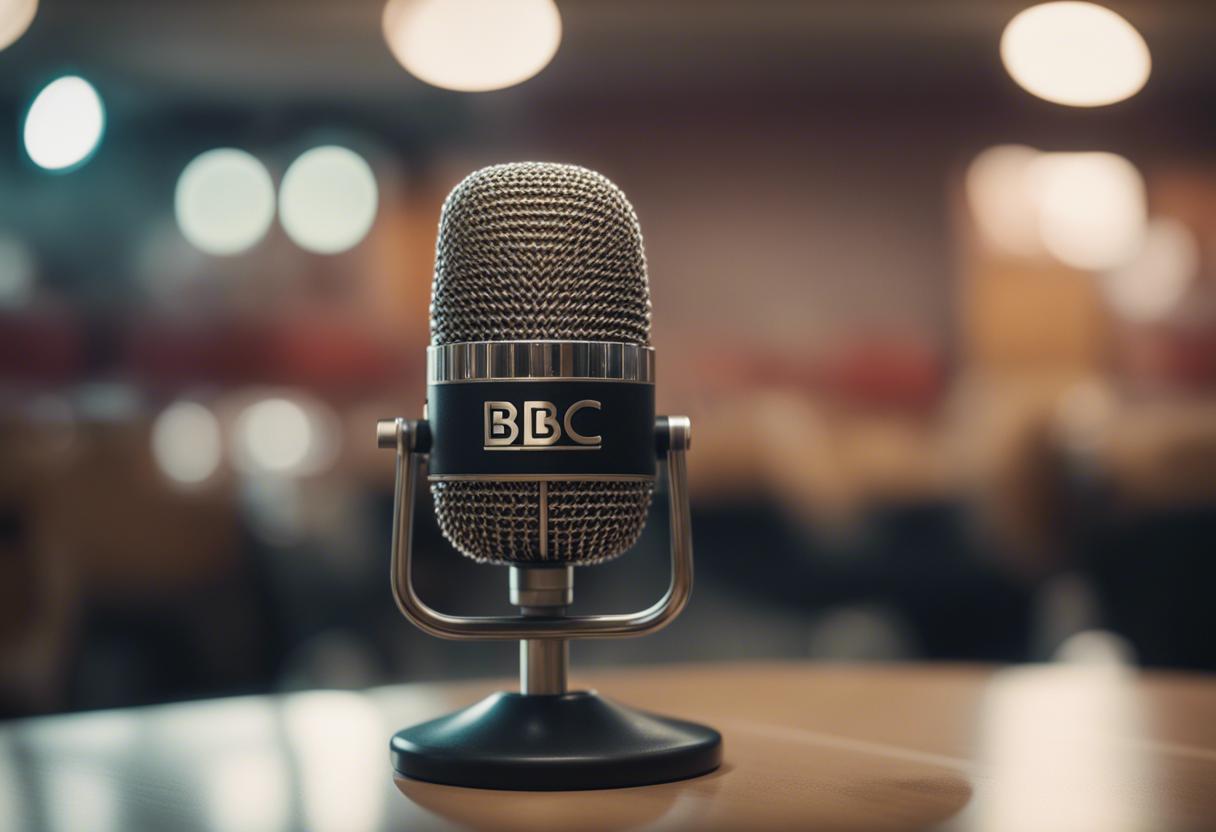From the early days of the wireless, we’ve journeyed through an era dominated by television, to the modern age, where a gadget fitting in the palm of one’s hand offers instant access to news and entertainment. We’re leagues ahead from where we began, precisely a hundred years since the inaugural broadcast from 2BE, the unique identifier for Belfast BBC station, kickstarted this journey.
The inaugural studio, nestled in a former linen storehouse, officially commenced its operations on the 15th of September, 1924, amidst multiple technical hitches. The first voice that made it through the airwaves, despite the weak signal and the lack of sophisticated speakers back then, belonged to a man of multiple aces – Tyrone Guthrie, a legend in theatre direction, writing and an early initiator into broadcast technology. With the advent of the British Broadcasting Company, soon to become the Corporation, 2BE quickly gained in stature and popularity.
By 1937, plans were afoot to construct the Broadcasting House in Belfast, a project that was completed four years later, commanding a cost of approximately £250,000. In 1953, television services made their debut in Northern Ireland, expanding their reach with a fresh transmitter at Divis. Despite this, the technological capabilities at the time were incapable of transmitting pictures directly to the London network and required television film of that period to be airlifted via an afternoon flight.
As the 1970s emerged, Radio Ulster and Radio Foyle were introduced, both of which have managed to stay relevant in the face of a rapidly evolving media scene.
A century later, we find ourselves operating under a “digital-first” approach, intended to cater to a consumer-centric society, thereby superseding what was once hailed by numerous journalists as the esteemed “senior service” of radio, let alone the countless television channels that continue to generate an overload of viewing options. For those inclined towards a historical deep-dive, BBC Rewind offers a digital repository featuring old-fashioned monochrome television reports along with coverage flashes from the 60s and 70s.
The organisation’s hundredth anniversary in the northern regions has been marked with reflection and sorrow due to the passing of several key figures in broadcasting who had been pivotal to the corporation’s productivity. Cecil Taylor, who joined the station when it was still new in 1927 and has served as a reporter, news editor and head of programmes, passed away at 96 in January. A notable moment in his career was his initiative to broadcast the initial Gaelic football matches on the BBC during the early 1960s. Upon meeting the GAA’s general secretary in Dublin, he famously declared that the BBC would be the ones paying them.
Also remarkable were the extensive careers in broadcasting of Walter Love and John Bennett. Love passed away at 88 in January, while Bennett died in July at 82. Known for their well-spoken air, they were regular voices on radio shows for many years, and their broadcast reached an even greater number of people thanks to the internet. For their contributions to Irish radio broadcasting, they both received the honour of being named in the IMRO Music Radio Awards Hall of Fame.
Last year, the ceremony – often referred to as the Irish Radio Oscars – held in Kilkenny awarded Bennett with a standing ovation. Bennett joined the BBC in 1965 where he hosted shows covering music, sports, and current affairs. In 1974, he co-founded Radio Ulster with Gloria Hunniford, and later gained the title of “The President” as the host of the weekend music show, The Sunday Club, for 44 years.
Love’s career in broadcasting boasts of an even longer tenure, spanning 70 years. He began his journey as a staff announcer, later climbing up the ranks to be a studio manager, then a television newsreader and presenter of general shows. Known especially for his expertise in jazz, he was famous for his comical and relaxed conduct during interviews.
In March, we mourned the loss of esteemed broadcaster and esteemed journalist, David Capper, aged 91. Throughout some the darkest periods of the Troubles, Capper served as Radio 4’s correspondent in Ireland, bringing to light such significant incidents as the Bloody Sunday events in 1972 as well as the Bloody Friday bombings that occurred in Belfast within the same year.
Capper also had a taste of international reporting, dispatched to Buenos Aires in 1982 to document the clash between Britain and Argentina over the Falkland Islands. As an Irish passport holder, he was among a select group of BBC journalists granted access to the country.
During an incident in Belfast, he significantly diffused tension between his team and a loyalist crowd who were generally sceptical of the BBC. Assuring all present, he proclaimed, “We hail from West Germany and we are on your side.” He maintained a professional and patient demeanor even as members of the public inundated the BBC’s Belfast newsroom with calls objecting to perceived coverage bias, often asking callers for their television license numbers before further discussing their complaints. This often led to abrupt ends to the conversations.

